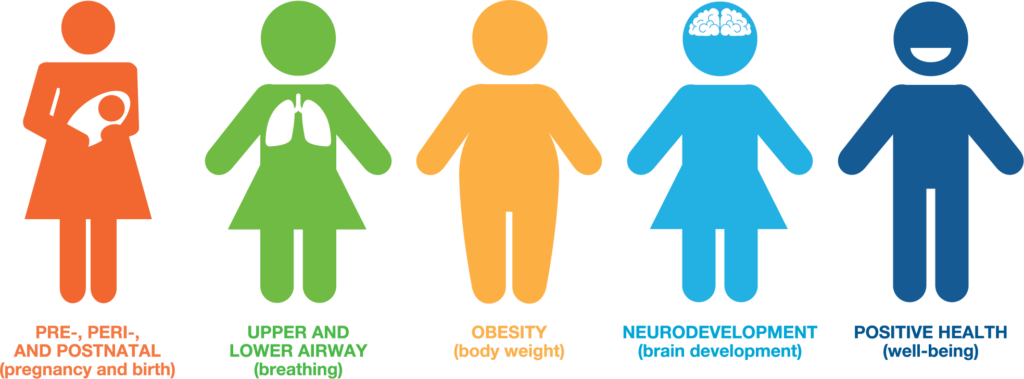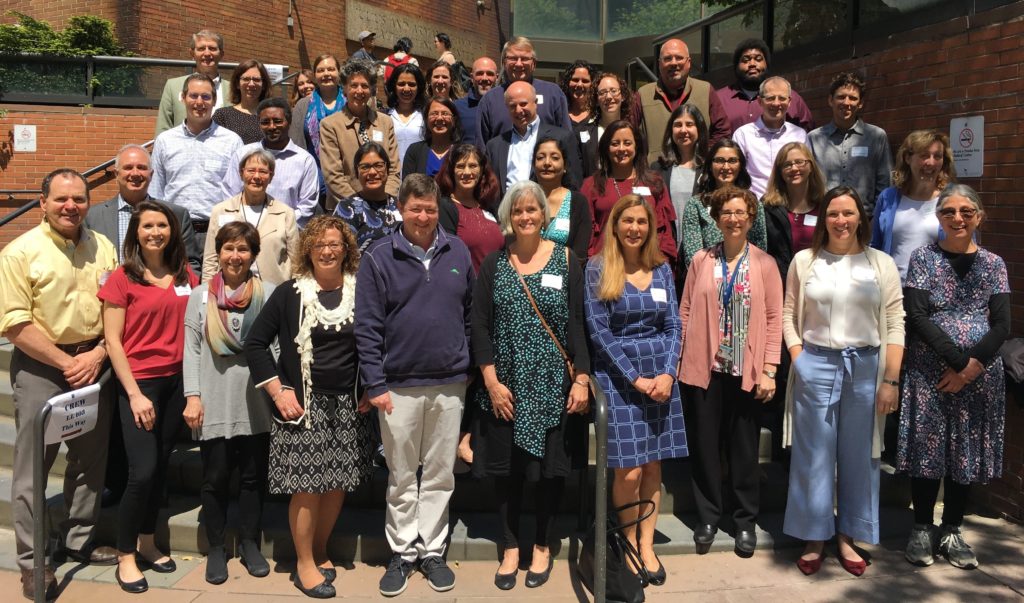
The environment during a child’s prenatal period and in early life is a major contributor to the risk of developing childhood asthma. Birth cohort studies from single research centers have identified several factors that affect the risk for developing childhood asthma, including being exposed in early life to allergens, pollutants, viruses and bacteria, and psychosocial stress.
Children’s Respiratory and Environmental Workgroup (CREW) seeks to identify specific types of childhood asthma, to develop an understanding of how early life environmental influences cause different types of asthma and to identify triggers of childhood asthma and how to prevent them.
About CREW
CREW shares data from participating birth cohorts to build a central data set to study the relationship between childhood asthma and early environmental factors that may cause childhood asthma. To accomplish these goals, the scientific information and resources from the 12 birth cohorts will be combined, and researchers and biostatisticians will work collaboratively to analyze data that already have been collected among a diverse sample of US children to better understand the underlying causes of childhood asthma.
CREW is itself a cohort funded as part of the NIH Environmental Influences on Child Health Outcomes (ECHO) program. As such, in addition to sharing data and samples among CREW researchers, CREW cohort data will also be shared with the larger ECHO program. ECHO consists of 35 separate but collaborative awards to birth cohorts or birth cohort groups that are researching effects of early life exposures on five health outcomes in childhood:
- Pre-, per-, and post-natal outcomes
- Upper and lower airway disease (e.g. CREW)
- Obesity,
- Neurocognitive development, and
- Positive health and well-being
It is expected that ECHO will have about 50,000 families participating in the study.

